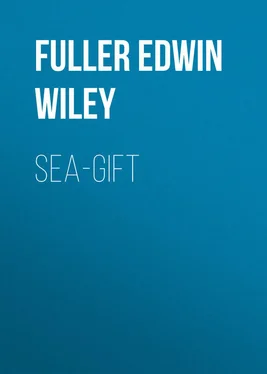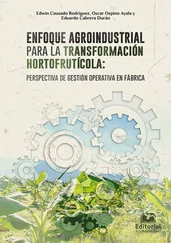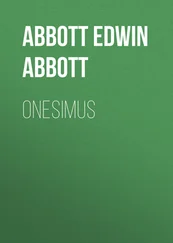Edwin Fuller - Sea-gift
Здесь есть возможность читать онлайн «Edwin Fuller - Sea-gift» — ознакомительный отрывок электронной книги совершенно бесплатно, а после прочтения отрывка купить полную версию. В некоторых случаях можно слушать аудио, скачать через торрент в формате fb2 и присутствует краткое содержание. Жанр: foreign_antique, foreign_prose, на английском языке. Описание произведения, (предисловие) а так же отзывы посетителей доступны на портале библиотеки ЛибКат.
- Название:Sea-gift
- Автор:
- Жанр:
- Год:неизвестен
- ISBN:нет данных
- Рейтинг книги:4 / 5. Голосов: 1
-
Избранное:Добавить в избранное
- Отзывы:
-
Ваша оценка:
- 80
- 1
- 2
- 3
- 4
- 5
Sea-gift: краткое содержание, описание и аннотация
Предлагаем к чтению аннотацию, описание, краткое содержание или предисловие (зависит от того, что написал сам автор книги «Sea-gift»). Если вы не нашли необходимую информацию о книге — напишите в комментариях, мы постараемся отыскать её.
Sea-gift — читать онлайн ознакомительный отрывок
Ниже представлен текст книги, разбитый по страницам. Система сохранения места последней прочитанной страницы, позволяет с удобством читать онлайн бесплатно книгу «Sea-gift», без необходимости каждый раз заново искать на чём Вы остановились. Поставьте закладку, и сможете в любой момент перейти на страницу, на которой закончили чтение.
Интервал:
Закладка:
At last Mervue, as Mr. Cheyleigh’s place was called, with its long avenue of oaks, came in view, and in a few moments our horses, lathered with foam, were prancing with unspent fire at the door. Mrs. Cheyleigh, Ned and two of the children, with Carlotta, met us at the steps. Mrs. Cheyleigh had told her of our coming, and her great speaking eyes were turned inquiringly upon us. Mother did not wait for introduction or salutation, but rushed forward and clasped her in her arms. Carlotta seemed in an instant to sound the depths of mother’s tender love, and her first touch was an electric flow of sympathy. Throwing her arms around mother’s neck she burst into convulsive sobbing. It touched every one present. Mrs. Cheyleigh wept; Ned turned into the house with his handkerchief to his face, while I, trying to hide my emotion, was ruthlessly plucking and snapping the tendrils of a jasmine that was clambering over the sides of the porch – little Sue Cheyleigh, in the artless curiosity of childhood, walking around to look at my eyes, in order to discover whether I was crying or not. The first paroxysm of grief over, mother gently released Carlotta, and Mrs. Cheyleigh, with that half hoarse tone which always succeeds tears, invited us in. Carlotta grasped mother tightly by the hand and we followed Mrs. Cheyleigh into the house. Having now an opportunity to observe her closely, I found that Carlotta was not such a little girl as I had supposed – being, in fact, nearly as old and as large as Lulie. Mother, Mrs. C. and the children taking seats in the large, cool sitting room, Ned and myself went out to the stables to see about the horses. When I returned to the sitting room I found mother and Carlotta alone – Mrs. Cheyleigh having excused herself for a short time to attend to domestic affairs. Mother was sitting near an open window, gently stroking Carlotta’s head, which lay confidingly in her lap. They were talking, and, not wishing to interrupt, I took my seat quietly near them.
“And you are willing to come with us and be our child?” mother said, bending over her.
“If you all are willing to take me,” said Carlotta, “I will try to deserve your love.”
“We love you already, my darling child, and will love you more and more each day.”
“I believe you, and trust you, ma’am; but oh! my father, my dear, dead father! how I wish that I were with you in the ground!” and the poor child broke down into sobbing.
“Hush, dear,” said mother, gently; “do not speak so; God has seen fit to spare you – ”
“I know He has, but I wish He had not; ‘twould be far sweeter than life to lie by father’s side, though it is cold. But oh!” she continued, raising up her head to look in mother’s face, and taking her hand, “I am so ungrateful to you; you are so good to offer me a home, and yet I shrink from going where I have no right to go, except the right of your kindness.”
“That shall be the surest right of all,” said mother, kissing her forehead; “but you must not feel dependent. We do not take you because we pity you, but because we want just such a daughter to live with and love us.”
“Then, will you promise me, ma’am, if you ever tire of me, that you will send me away? You can do it without unkindness, because papa had a great deal of money, and you can pay some one to take care of me. Will you promise me?”
“Yes, dear, I will promise you to send you away whenever we get tired of you. But, in the meantime, I do not want you to feel humble in our home, as if you were a charity child. Col. Smith has examined your father’s papers, and finds that you are possessed of considerable wealth. He has written to your father’s agent, who was named in the papers, and to the American Consul at Havana. He will probably go to Cuba himself next month, to see about the appointment of a guardian and the settlement of your estate. Have you no relatives at all there?”
“I have a cousin, who lives on the other side of the island, but I have not seen him since I was a very little child. Mother was an orphan, like myself, and came from Spain to Cuba with an old uncle, who died after she was married to papa. We had many acquaintances, but no relatives anywhere in the island except the cousin I have spoken of. I have heard papa speak of having relatives in New Orleans, but I do not know their names.”
“Well, you are composed now; try to remain so. Do not give up to those sad feelings when you feel them coming on.”
“I do struggle hard, Mrs. Smith, to keep from crying; but whenever I commence thinking about the evening of the storm – and I cannot help thinking about it – I remember how happy papa and I were sitting together in our state room, and, though the wind had been high for a day or two, we felt so secure, for the steamer was thought to be the strongest one on the line. I remember so well his holding me by the hand, and saying:
“‘I think the wind is lulling, Lottie, bird; we will be safe to-morrow.’ And then came that terrible cry that the ship was sinking; and we ran together out on the deck, only to find the crew in a panic, and the storm wilder than ever. Papa dragged me back to the cabin, tore off the door, tied me to it, and – Oh! I cannot, cannot think of it without crying. Do not blame me, I cannot help it.” And her eyes filled again, and her lip quivered with suppressed feeling.
“Dear child, you know I do not blame you; only try by every means to keep your mind from reverting to the painful scene. I will not offer consolation now, for I well know how deceitful it sounds to the bereaved to hear those who are not, quoting scripture passages to recommend resignation and submission. The beautiful sacred words are meant as a sympathy, not as a teaching. When your lips are lifted farther from this cup of gall we will go together to the Fount of Life and drink its sweet waters.”
Mrs. Cheyleigh now returned to the room, and the conversation, ceasing between mother and Carlotta, became general. So many and varied were the topics to be discussed that the morning passed rapidly away; dinner came on, and the afternoon siesta, in hammocks swung in the verandas, where the sea breeze came cool and refreshing, was enjoyed, when the sinking sun reminded us that it was time to order the carriage.
When Carlotta came to tell Mrs. C. good-bye, and thank her for her kindness, she had nearly lost control of herself again, but, with an effort, she kept her tears back and entered the carriage. The shadows which had been hiding from the sun all day around the roots of the trees were now stretching out at great length, and spreading into all kinds of fantastic shapes, though they still kept the trees between them and the glaring eye they dreaded so much. The scenery through which we passed was all drowsiness, instead of the vivacity of the morning. The sun had gone down and the twilight was fading when we stopped at our door. Father and Lulie Mayland were standing on the stoop, waiting for us. Father took Carlotta in his arms out of the carriage and pressed her to him tenderly, while I was helping mother out. Lulie was then presented to her, and, after a kiss and embrace, they went up the steps hand-in-hand, as fast friends as if they had known and loved each other from their birth. We went into the dining room, where early summer tea was already laid. Carlotta did not wish anything, and mother withdrew in a short time with her. After the silence that succeeded, for a few seconds, their retirement, father said (and I knew by the twinkle in his eye he was enjoying the thorns on which I sat):
“Lulie,” sighting at her with one eye through his iced tea, “I am afraid you will have a powerful rival in Carlotta. You must secure all your beaux with double chains or she will steal them away. I think one is proving recreant already, if I may judge from the glances of admiration he lavished upon her just now at the table.”
Читать дальшеИнтервал:
Закладка:
Похожие книги на «Sea-gift»
Представляем Вашему вниманию похожие книги на «Sea-gift» списком для выбора. Мы отобрали схожую по названию и смыслу литературу в надежде предоставить читателям больше вариантов отыскать новые, интересные, ещё непрочитанные произведения.
Обсуждение, отзывы о книге «Sea-gift» и просто собственные мнения читателей. Оставьте ваши комментарии, напишите, что Вы думаете о произведении, его смысле или главных героях. Укажите что конкретно понравилось, а что нет, и почему Вы так считаете.












